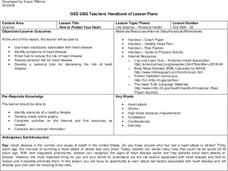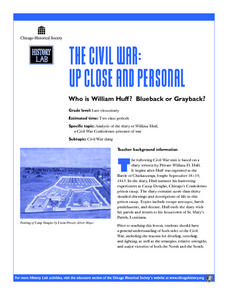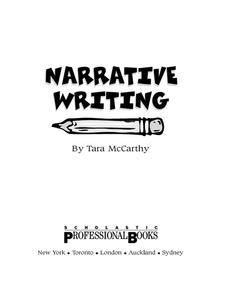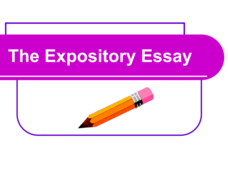Curated OER
Prescribing Beauty
Learners explore self image. In this personal health lesson, students watch "Prescribing Beauty," and discuss what beauty is. Learners develop beauty questionnaires and complete them.
Curated OER
How to Protect Your Heart
Students examine risk factors associated with heart disease and develop their own personal plans for decreasing the risk of heart disease.
Curated OER
Producing a skit for the morning announcements
Students produce a skit to appear on their morning announcement that is in lined with their franchise topic. In this producing lesson plan, students produce a 2 minute skit including originating, scripting, editing, directing, and...
Curated OER
A Power Point Slide Show for Third Graders
Third graders explore PowerPoint. In this technology lesson, 3rd graders select a topic of interest and follow a guided lesson researching their topic. Students complete storyboards, introductions, table of contents and...
Curated OER
Recovering From Bad Eating
Students take a closer look at eating disorders. In this personal health lesson, students research common eating disorders, investigate treatments for the disorders, and make presentations that highlight their findings.
Curated OER
HIV/AIDS and Development
In this global issues worksheet, students conduct research on the the status of AIDS/HIV treatment in the world and respond to 4 short answer questions related to the topic.
Curated OER
Create Your Personal Shield
Fourth graders create a poster in the shape of a shield, which represents their individual lives by using art, photographs, magazine and newspaper graphics.
Curated OER
The Civil War: Up Close and Personal
Young scholars take an in depth look at different aspects of the Civil War. Using primary source documents, they discover that people who lived during the war are not so different from them. They read about the experience of a...
Curated OER
Creating a Consumer-Awareness Information Campaign
Students work across grade levels to research and design a community awareness campaign on the benefits of purchasing fair trade chocolate. They develop print advertisements, conduct research, write letters, make posters and prepare oral...
Curated OER
Un Séjour à Paris
Everyone dreams of going to Paris! Challenge your advanced French speakers to really get to know the city of lights. They use the plethora of worksheets provided to really explore the monuments, museums, and shops of Paris. They use a...
Curated OER
New York City Delights: The Taxi Cab
You set the rate! Step into the shoes of a taxi driver in New York City, and also pretend to be a person who uses taxis to get around town. The class will conduct collaborative research to learn about the history of taxis. Then, they...
Curated OER
Power
If you need to teach about power, this is an outstanding educational resource! It provides definitions of work and power, and gives examples to help junior physicists apply the information. The format is neat and the graphics are...
Scholastic
Narrative Writing
If you're looking to start a unit based around narrative writing, make sure to consider this resource while you're planning. This book covers five topics: writing personal narratives, writing narratives about others, writing...
Curated OER
Unknown Frost Poem Discovered
What? A long-lost poem from Robert Frost? Introduce your class to a poem recently found and published from Robert Frost's personal collection. The lesson includes background information on the author, the poem itself, and a list of...
jc-schools
The Expository Essay
Did you ever create an awesome graphic organizer only to find that your class was completely baffled by how to use it? This resource not only provides you with a great graphic organizer for a standard five-paragraph essay, but also...
Curated OER
The Probabilities of Problems: A Look at Genetic Inheritance
Discuss an article about families affected by genetic disorders and their decisions about whether or not to evaluate their own genetic information. Investigate four different inherited disorders. Participate in a probability exercise....
IBM
What Path Will You Follow?
"What do you want to be when you grow up?" is a question every kid has to answer quite often. Here is a instructional activity that will allow them to do some thinking about that very topic, and to learn about some professions they might...
PBS
Journalism in War Time: What Does the Public Need to Know?
A viewing of the documentary War Feels Like War, launches an exploration of the importance of accurate and comprehensive war reporting. Groups investigate various news agencies and assess the factors that influence their stories. A...
Curated OER
Safe Food
There is so much information in this lesson. A very comprehensive unit plan about food safety can be broken up into smaller pieces so as not to overwhelm the class with so much information at once. Some of the topics include handling...
Curated OER
Motion in the Ocean
How does the formation of currents and waves in the ocean happen? High schoolers will learn about the primary causes for ocean currents and waves by calculating a wave's amplitude and nautical mile speed. Then they will complete a...
Curated OER
Magazine Production
Analyze magazines as a class, looking carefully for the target audience, advertisements, and topics presented. Small groups then work as a publication team and receive a magazine that they have to "sell." Each individual has a different...
Curated OER
Water: From Neglect to Respect
The goal of this collection of lessons is to make middle schoolers more aware of the ways in which they are dependent upon water to maintain their standard of living. Learners compare water use in Lesotho to water use in the United...
Curated OER
Knights of the Round Table
As an exploration of the Knights of the Round Table, this activity helps students organize their information and check for understanding by using the comprehension questions. This packet would be a terrific supplement to a unit on this...
Curated OER
Youth Obesity: Schools Fight Back
Kids fight obesity by comparing the USDA food intake suggestions to what they personally consume throughout the day. They watch a video, read texts, and explore related vocabulary which they use as they compose an oral presentation.























